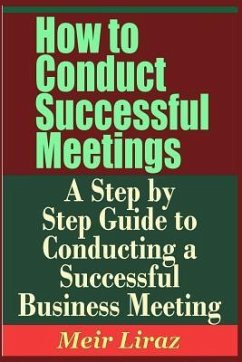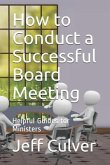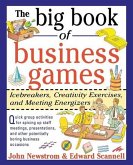This guide will walk you step by step through all the essential phases of conducting a successful meeting. Was your last meeting successful? Were you an effective chairman or an active participant? Were those who had a contribution to make invited? Did the meeting accomplish the stated purpose? These questions and many more need to be asked and answered affirmatively if organizational meetings are to be successful. The chairman - the one who plans, hosts, and leads a meeting - must establish a proper environment. The environment, and the feeling conveyed to the participants by the chairman, will have a great impact on the outcome of the meeting. The chairman must stimulate, guide, clarify, control, summarize, and evaluate the discussion, keeping in mind his responsibility to accomplish the meeting objectives. If he fails to perform his role effectively, the meeting may turn into meaningless discussions of irrelevant subjects, a series of pointless power plays, and even boring monologues. Meetings are essential and can serve as an effective method of communication within an organization. They have been rightfully categorized by some managers as time-consuming, high-priced, and un-productive, but this need not be the case. Sometimes we expect too much from a meeting. When it fails to meet our expectations, we may be too quick to criticize. Meetings are helpful means of achieving coordination. When there is a gathering of people with a mutual interest, the results may be as follows: - Encourage participation in the subject of concern; - Integrate interests; - Broaden perspectives and change attitudes; - Improve decision-making; and - Motivate and commit participants to courses of action. The fundamental decision concerning meetings is not whether to hold them, but how to make them effective. Recent studies show that members of middle management spend 30 percent of their time in meetings. Unproductive meetings can result in substantial loss to an organization. On the other hand, a productive meeting becomes a tool for effective management communication, and serves as a vehicle for development of specific plans or the organization of specific tasks. In any case, successful meetings don't just happen; they occur as a result of careful planning, good leadership, and close attention to details before, during, and after the session.
Hinweis: Dieser Artikel kann nur an eine deutsche Lieferadresse ausgeliefert werden.
Hinweis: Dieser Artikel kann nur an eine deutsche Lieferadresse ausgeliefert werden.








